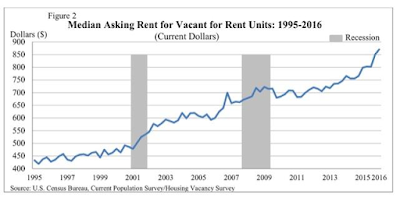We don't know what vat the editorial staff at the WSJ quaffs from daily, but it's clearly vintage stuff. In this case the same old stale stuff in their attempt to protect and maintain the status quo.
In today's Opinion section they featured Fred Barnes, "Trump Needs Ryan More Than He Knows," a rather weak and pathetic veiled threat that Trump must now sell out those 10 million crazies who voted for him and unify the party. It might not be PC, but let's be blunt here. The Republican Party is bankrupt. Paul Ryan at least in the eyes of many is a symbol of that bankruptcy.
It's a safe bet--what out of touch people like Fred Barnes never get--that many of those 10 million votes Trump received is because the status quo is no longer palatable, something Barnes in his article keeps harking back to with his nonsense about unifying the various wings of the party.
Barnes, a Washington insider, rolls out a few veiled threats like this gem: "Mr. Trump could wind up embarrassed by the very convention that nominates him." Given that the Republican party has been an embarrassment for years, this is hilarious. This is a party that served up George Bush, John McCain and Mitt Romney, all in the same century.
Then there is Barnes' threat that the GOP's congressional wing is wider than the members of Congress, that it is "loosely organized and exists in an orbit around Mr. Ryan. He is the architect of its agenda and is pursuing it vigorously in the House. Party elites are on his side."
Barnes proves with that little ditty he and his kind haven't got a clue. Many of those 10 million votes came from people who are sick of those party elites and want to get rid of them. Including Mr. Ryan. Barns then cites another threat if Trump fails to play ball, a third party candidate.
The party can cough up a third or fourth or fifth party candidate. It will only validate what those 10 million votes were saying all along: the GOP in its current state is an anachronism. Out of touch, out of threats and out of time.
The one thing Barnes gets correct is his assertion there's much at stake here. There sure is. And it has nothing to do with a party that's been socially insolvent for years and everything to do with the liberty, freedom of choice and privacy of those 10 million voters. And there are hordes more out there.
Paul Ryan is the water boy of the elite. The day of the neocon has come and gone. Thanks in part to the Internet people are now hip to the neocon jive: Wars, phony trade agreements, huge military-industrial complex, one world government and U.S. hegemony.
There's an old saying about being too close to the forest to see the Aspens. That's what goes on in DC. Barnes and his fellow travelers at the WSJ are too entrenched and too benighted to be embarrassed for being so out of touch. They should be.





